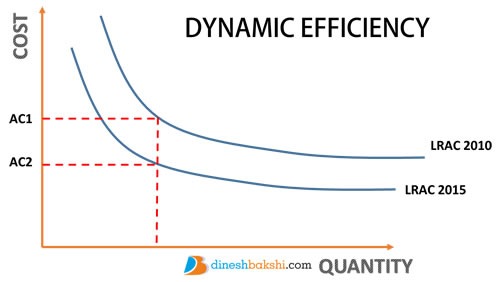Dynamic efficiency involves improving allocative and productive efficiency over time. This can mean developing new or better products and finding better ways of producing goods and services. Learning, investment and innovation are key elements of dynamic efficiency and central to the ability of an organisation, industry or economy to adjust to changing circumstances.
The standard of dynamic efficiency is linked with the concept of entrepreneurship which is understood as the main driving force behind the creativity and coordination which spontaneously arise in the market.
From a dynamic standpoint, an individual, a company, an institution or an entire economic system will be more efficient the more it fuels entrepreneurial creativity and coordination. From this dynamic perspective, the truly important goal is not so much to prevent the waste of certain means considered known and ‘given’ (the prime objective from the viewpoint of static efficiency) as to continually discover and create new ends and means, and thus to foster coordination while accepting that in any entrepreneurial process new maladjustments will always appear and hence a certain amount of waste is inevitable and inherent in any market economy






